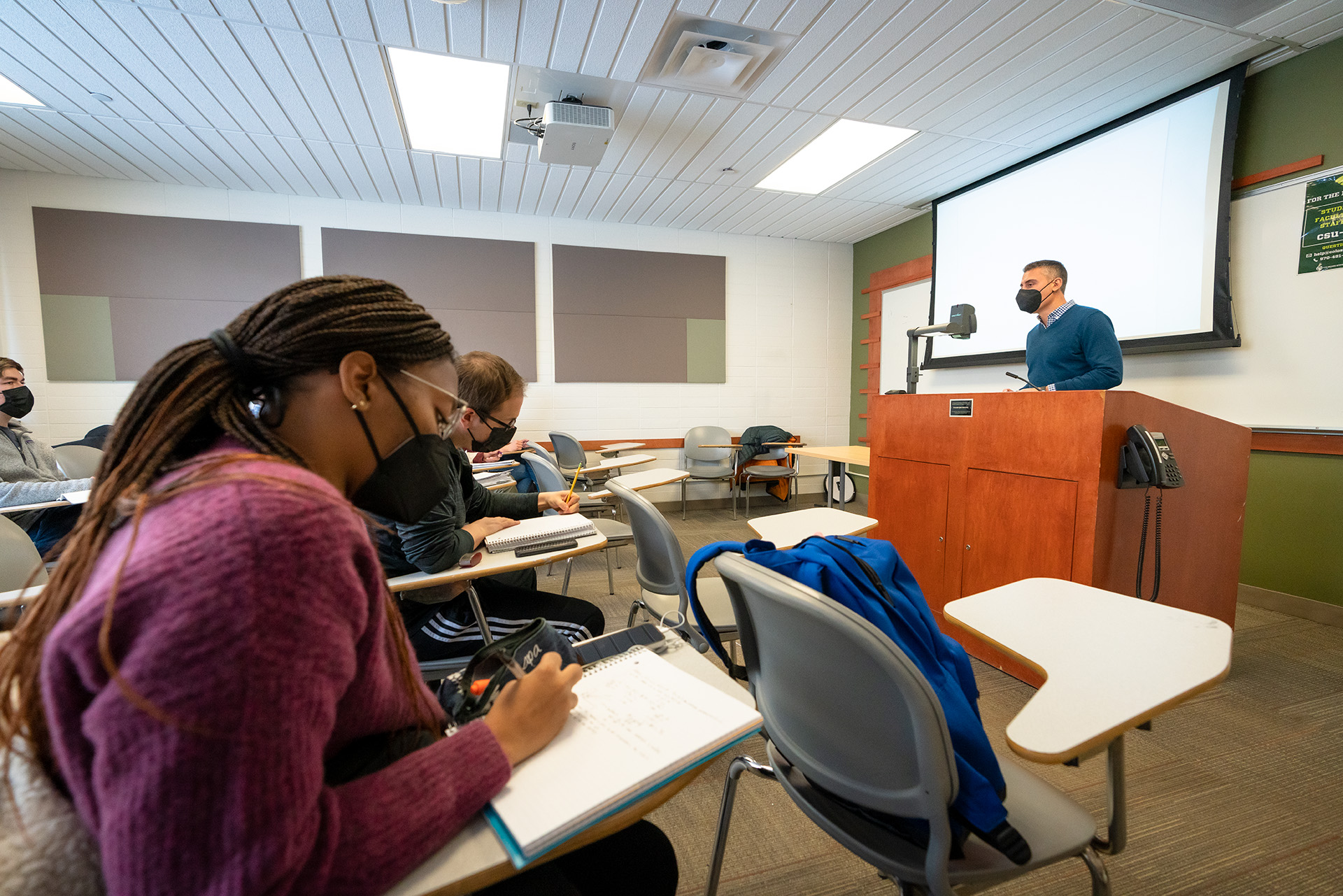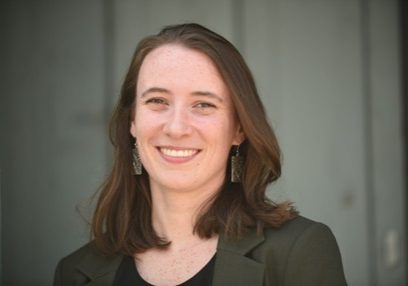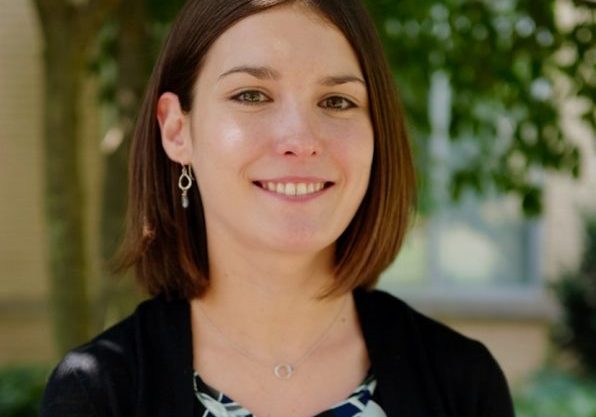
Graduate

Graduate
Ph.D. in Economics Overview
Colorado State University’s doctoral program in economics has a national and international reputation of excellence in the fields of environmental economics, political economy, and regional economics. Our faculty and students are pluralists who specialize in a wide range of economic thought.
Our Ph.D. program prepares students for academic careers in the U.S. and around the world, as well as senior positions in government agencies and the private sector.
Recent PhD job placements include tenure-track faculty positions at California State University San Bernardino, Colorado College, Denison University, Monmouth University, Morehouse College, Pepperdine University, University of Denver, University of Texas Arlington, University of Utah and at a range of universities globally.
Recent public sector placements include the Colorado Governor’s Office of State Planning and Budgeting and the Colorado Department of Public Health and Environment among others.
In addition, our PhD graduates have gone on to post-doctoral scholar positions and senior research analyst positions in the private sector.
Finally, the City of Fort Collins provides a wonderful environment for our graduate students: it consistently ranks among the best places to live in the US, has world-class outdoor amenities, and is only an hour away from Denver International Airport.
Program Requirements
Our faculty members are caring teachers and prolific scholars who have active research agendas, providing many opportunities for students to collaborate. Our goal is to prepare our students to be critical thinkers who understand the debates about economic methodology and policy, as well as the techniques of economic analysis.
Core Courses (27 Credits)
- ECON 501 Quantitative Methods for Economists
- ECON 505 History of Economic Thought
- ECON 604 Macroeconomic Analysis I
- ECON/AREC 606 Microeconomic Analysis I
- ECON/AREC 635 Econometric Theory I
- ECON 704 Macroeconomic Analysis II
- ECON 705 Heterodox Approaches to Economics
- ECON 706 Microeconomic Analysis II
- ECON 737 Advanced Econometrics
Research (30 Credits)
- ECON 698 Research Replication
- ECON 799 Dissertation (27 credits)
Advanced Courses (15 Credits)
- Selected from the options below
Advanced Courses
Development Economics
Nearly half of CSU faculty have active research agendas that contribute to development economics. Our inquiries draw on methods of promoting economic development, economic growth, and structural change, as well as improving health, education, and workplace conditions.
A cohort of our faculty and current graduate students contribute to the Poverty Action Center (PAC@REDI), an interdisciplinary enterprise that uses development economic tools to answer questions around poverty, inequality, education, and microfinance.
Courses
- ECON 760 Theories of Economic Development
- ECON 765 Natural Resources and Economic Development
- ECON 792E Seminar: Development
Program Timeline
Master’s Plan B
If a student does not make satisfactory progress, or decides they do not wish to continue the Ph.D. program after the completion of the second year, they may graduate CSU with a Master of Arts in economics (Plan B). The Plan B degree does not require a thesis; instead, either a scholarly paper, exam, portfolio, or similar project is required, as well as a final exam/defense. The Replication Exercise completed in ECON 698 satisfies this requirement.
Dissertation
Each Ph.D. candidate. must submit an acceptable dissertation, embodying publishable original research on a topic approved in advance by the student’s committee. A dissertation is the scholar’s own contribution to knowledge and reflects the ability to conduct and communicate independent research of such caliber and expertise that it adds significantly to the field of knowledge.
1. Preliminary Oral Comprehensive Examination (Preliminary Defense)
At least two semesters before the student intends to graduate, they must pass an oral comprehensive exam administered by their advisory committee. The content of this exam ordinarily includes a presentation of a prospectus on the proposed dissertation research, plus any additional material covering economic theory or the student’s fields where the committee determines that such coverage is warranted.
2. Final Oral Examination (Dissertation Defense)
The final examination is an oral dissertation defense in which the student is examined on the contents and methods of their dissertation research, as well as related areas of economics.
3. Final Submission
The dissertation format must comply with the standards specified in the Graduate School’s Thesis Manual and be approved by the department prior to binding. A hardbound copy of the dissertation must be submitted to the department chair. It is also customary that a hard-bound copy of the dissertation be presented to the student’s dissertation advisor.
PhD Alumni Stories

Luke Petach (PhD, 2019)
Current Position: Associate Professor, Jack Massey College of Business, Belmont University The best thing I can say about my experience as a PhD student at CSU is that if I could do it all over again, I wouldn’t change a thing. I am fortunate that my dissertation committee members were not only excellent teachers, model […]
Read More
Sarah Small (PhD, 2022)
Current Position: Assistant Professor, Department of Economics, University of Utah I am very thankful for my doctoral training in CSU’s economics department. Opportunities to teach my own classes and learn about effective pedagogy helped me feel confident in my teaching— even in my first year as a professor. Faculty at CSU wove real-world research opportunities […]
Read More
Lackson Mudenda (PhD, 2023)
Current Position: Assistant Professor of Economics, Governors State University I was born and raised in Zambia and never had I ever once in my life imagined that I would find myself in higher education in the USA. In 2018 I was admitted to the PhD program at CSU and my experiences for five years of grad school […]
Read More
Melanie Long (PhD, 2019)
Current position: Associate Professor of Economics and Business Economics, College of Wooster I chose the CSU Department of Economics for my graduate studies for three reasons: the wonderful community, the unique academic program, and the emphasis on teaching. In retrospect, I’m so glad I made the choice I did. All of these aspects of the PhD […]
Read More
Brody Hatch – Ph.D. Economics, 2017
Where I am now: I joined the team at Starbucks Coffee, coming onboard as a Data Scientist to now being the Director of Strategic Pricing and Applied Economics in their Seattle, WA office. “I chose CSU specifically because of the broad range of economic thought being taught by the diverse faculty. The mountains and sunshine […]
Read More